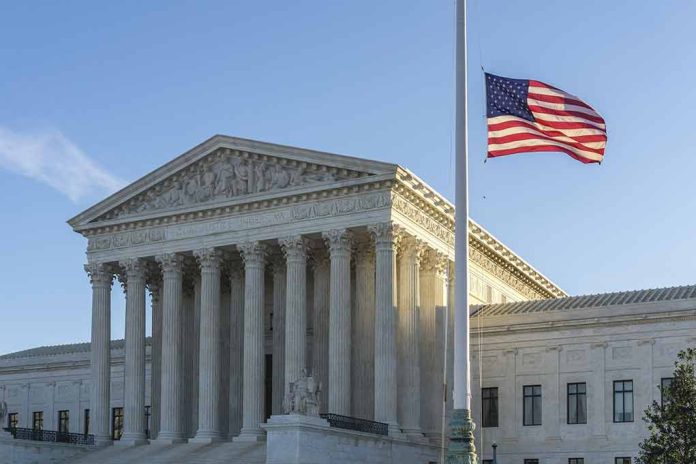
The Supreme Court has recently ruled that weekends and holidays are exempt from migrant deportation deadlines, sparking debate on fairness and legal process in immigration cases.
Key Takeaways
- The Supreme Court ruled 5-4 to omit weekends and holidays from deportation deadlines.
- The case involved Hugo Abisai Monsalvo Velázquez, a long-term Colorado resident facing deportation.
- Justice Neil Gorsuch wrote the majority opinion, joined by Chief Justice Roberts and the liberal justices.
- Four conservative justices dissented, suggesting the case should return to a lower court.
- Immigrants missing the deadline face removal, fines, and a 10-year ineligibility for most immigration relief.
Supreme Court Ruling Details
The Supreme Court’s recent judgment excludes weekends and holidays from migrant deportation deadlines in a 5-4 decision. Justice Neil Gorsuch, writing for the majority, was joined by Chief Justice John Roberts and the court’s three liberal justices. This decision offers relief to migrants whose deadlines fall on non-business days, aligning procedural fairness with justice. The judgment stems from a case involving Hugo Abisai Monsalvo Velázquez, originally from Mexico, who has lived in Colorado for nearly two decades.
Velázquez had built a life in the U.S., attending school, working, and having a family before facing deportation in 2021. He attempted to reopen proceedings late on a Friday but was denied, highlighting the challenges of meeting deadlines when government offices are closed. The court concluded that if a deadline falls on a Saturday, it should extend to the next business day, typically a Monday.
The US Supreme Court gave immigrants who agree to voluntarily leave the country more time to appeal their deportation if their departure deadline falls on a weekend or holiday. https://t.co/borWeQuEW3
— Bloomberg Law (@BLaw) April 22, 2025
Dissenting Opinions and Concerns
Conservative justices, including Samuel Alito, dissented, arguing the case should have been re-evaluated by a lower court to establish jurisdiction. Alito expressed concerns that extending deadlines was unwarranted, indicating that such leniency could lead to further interpretation challenges. Other conservatives suggested that the extension contradicted strict statutory deadlines initially set by the immigration laws.
Despite the ruling, immigration authorities typically face significant logistical hurdles in meeting procedural deadlines for deportations amidst closures on weekends and holidays. The decision seems aimed at avoiding potential hardships for individuals unable to finalize proceedings due to such closures. However, dissenting opinions highlight the fine balance between legal leniency and maintaining the integrity of structured immigration deadlines.
Broader Implications and Legal Precedents
The ruling includes precedents set during the Clinton era, reflecting a somewhat lenient interpretation of deportation deadlines over the years. Yet, it also ties into ongoing challenges facing current immigration policy under various administrations. Recent instances, such as the temporary halting of deportations for two Venezuelan men under a wartime law, illustrate an evolving landscape of executive powers and judicial oversight.
By focusing on fairness within immigration proceedings, the Supreme Court’s decision reaffirms the importance of logistical considerations and procedural justice. As the Trump administration considers challenging the judicial branch’s power, the legal fraternity keenly observes the unfolding impacts on immigration policy and constitutional dynamics.
Sources:
- Divided Supreme Court finds some deadline flexibility for immigrants who agree to leave U.S.
- Divided Supreme Court finds some deadline flexibility for immigrants who agree to leave U.S.
- Supreme Court rules weekends don’t count when it comes to deportation deadlines – Washington Times







